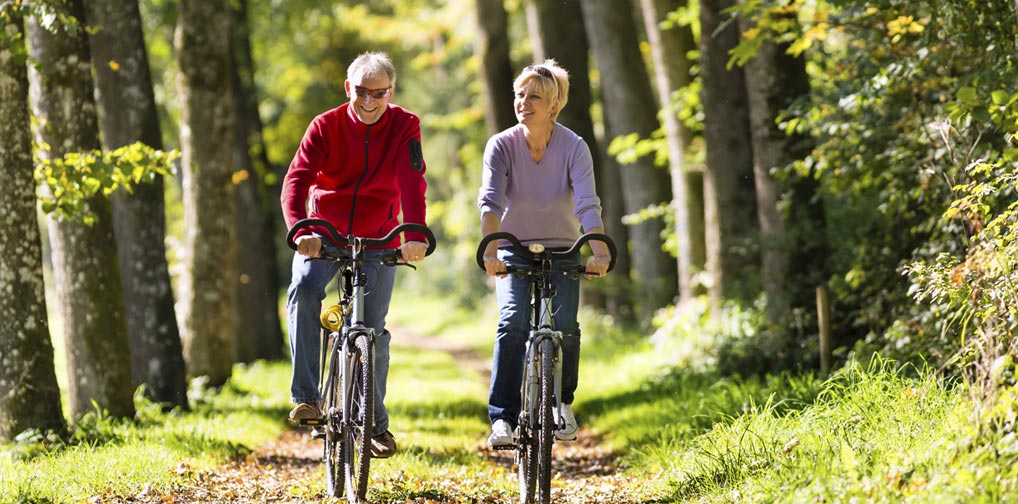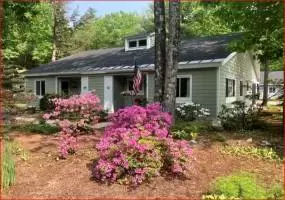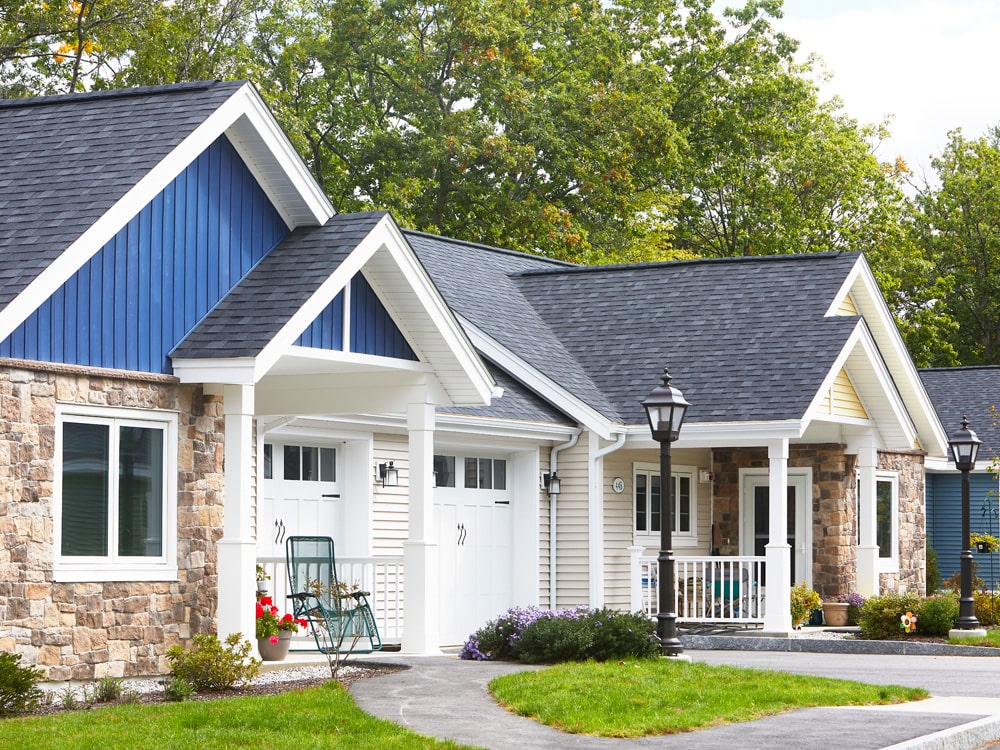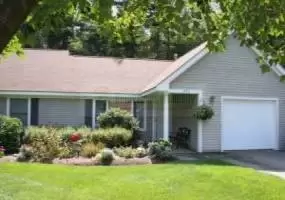![]() Concord NH Retirement Living
Concord NH Retirement Living
Concord, the 3rd largest city in NH with a population of 44,000, is located in Merrimack country, which inhabits the south central part of the state. The state capital since 1808, Concord is home to the oldest state house in the country. Concord is also home to many other historical sites, including the NH Historical Society Museum, where you will find the largest collection of artifacts revealing the story of New Hampshire.
2 Costs associated with adult lifestyle communities
Concord embraces a plethora of cultural offerings, such as The Capital Center of Performing Arts and NH Audubon’s oldest environmental center, whose trails and educational programs are open to the public. There is no lack of scenic adventures and outdoor experiences. With the Merrimack River traveling through the municipality, there are opportunities for guided fishing tours, kayaking, canoeing, and paddle boarding.
Tools to help you choose
Featured Links
- Active Adult Living BC
- Adult Lifestyle Manitoba
- Active Adult Living Ontario
- Active Adult Living Toronto
- Adult Lifestyle Communities Ottawa
- Adult Communities Hamilton
- Adult Lifestyle Oshawa
- Active Adult Lifestyle, Kitchener
- Active Adult Lifestyle, London
- 55 Plus Retirement Homes
- What’s the difference between active adult and independent living?
- Community spotlight: active adult living
- Your Type – Active Adult Living
Inside Adult Lifestyle Communities
Golfing communities
Making your own home the nineteenth hole (not necessarily vice versa!)
One of the most sought-after features in any adult lifestyle community is a golf course. Of course, a driving range, putting green and even a mini-putt are also nice to have. Lots of people are looking to “trade in their riding lawnmower for a golf cart” when they sell off their family home. Comfort Life lists homes with both 9 hole and 18 hole courses, and many active lifestyle communities are at least near a golf course. For many people, golfing and retirement go together like hand and (golfing) glove.
If you’re moving into a golf community, be sure to learn everything about guests’ policy, dress codes, availability of golf carts and other concerns you might have.
Ed King, one resident of a golf community in Toronto says it well: “We love our new home at the golf course.”


Many active lifestyle communities feature biking and hiking trails
As you consider communities, here’s a list of things to think about with respect to any specific community or to a variety of options you may be considering, in adult lifestyle.
Are there reviews of the community that I can consult? Find out all you can about what residents say about the community.
What can you find out about the Home Owners Association and other local “politics”? Get to know all you can about the community’s leadership, and the personalities who run the show. The Home Owner’s Organization might also be called a variety of other things, including the Owners’ Council and other names. Ideally the organization will encourage input from everyone in the development, and if you are so inclined, you should feel welcome to partake, and voice opinions and ideas.
What is the history of the community? Learn all you can about the reputation of the builder, of the community’s ownership and the history of ownership of the community. It may have changed hands in the past, and there may be interesting reasons for ownership changes.
What are the neighbours like? Of course you want to know this, the same as you would when moving into any neighbourhood. You can’t assume that everyone is perfect or just like you, of course, so be sure to learn all you can. You may even find out very good news, that they are not around much (travelers, perhaps) or they are just plain excellent people.
Has it been maintained well? Look at the age of the buildings and/or homes. Active adult communities come in a wide variety. In some cases, you may be fortunate to be moving into a phased development, where you can see how previous phases have turned out. Most often, communities will heavily promote new developments, some of which you will find on this page.
What are membership expectations? Make sure you fully understand membership in the community, especially all fees and dues you will be expected to pay. Different communities use very different terminology and have very different rules concerning membership and ownership stakes. Some charge annual dues, others monthly fees, and there are variations in ownership arrangements. Question the selling agent so you fully understand all fees and costs. If you know someone in the community, learn what you can from them about all costs they pay.
What are the maintenance fees? (And what is covered under those?) Most active living communities will have onsite staff whose income is covered under maintenance fees paid by homeowners. Even in communities where you own your own home, you will likely pay extra for community services ranging from dining to golf and other features and amenities described. Get the sales rep to fully inform you about community fees, packages and options offered and what fee structure is right for you. Ask also about the history (if there is any) of increases in fees and reasons for increases.
What services (e.g. laundry) or maintenance is included? Look over the list to make sure that all services and amenities the community offers appeal to you. Make sure you understand about any additional fees for specific classes or activities.
What is the broader area like? For example, are there local medical care services? What are some local activities you want to take part in? Is there enough shopping and other conveniences nearby?
How do you feel about the community’s pet policies? Depending on your personal preferences you may or may not want strict rules.
How much staff is onsite? You want to consider the value of services, as you think about this. Some communities have an abundance of staff and services offered. Some examples of titles we have seen include Master Chef, Lead Golf Professional, Head and Associate Concierge and more. Getting a list of staff gives you an idea of what services you are paying for (which can vary widely from one community to the next).
Get a full list of all the property rules, and rules covering all onsite facilities, just for your peace of mind.
It’s a smaller, more manageable home, in a smaller community. We wouldn’t trade it for anything.
7 What it’s like in adult lifestyle communities
These communities create an environment ideal for people who have shifted into their post-child-rearing years and whose interests have changed somewhat with age. “I’m not going to let being 74 years old change me, not if I can help it,” says Jack, a resident of a lifestyle community just outside of London, Ontario, where great trails nearby allow him to cycle every day.
One strong feature seen across a number of developments is a recreation centre on site, where all activities are geared toward those 50 and over. Some communities set up regularly scheduled casino nights where community residents can have friendly games of blackjack or play roulette together. There may also be an indoor swimming pool where people can swim laps, play water polo or other sports, and there may be other communally-shared facilities that are all included in the cost you pay.
“We moved here because it’s a smaller, more manageable home, in a smaller community. We wouldn’t trade it for anything,” says Francine, Jack’s wife. Being with people our own age, with similar concerns, definitely makes a difference in your everyday living.”
Is life perfect in these communities? Well, nothing’s perfect. “There are different personalities, to be sure,” says Francine, “so you know who to hang around with and who to keep your distance from, the same as you would in any neighbourhood or community. The way I look at it, that makes it like a big family. It’s just a great place to live.”
Being with people our own age, with similar concerns, definitely makes a difference in your everyday living.





